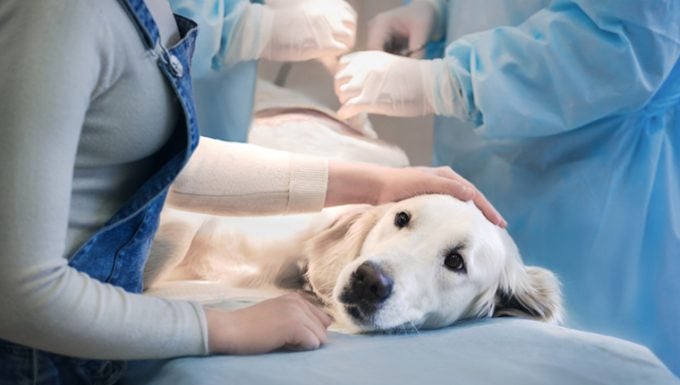- January 11, 2023
- No Comment
- 3 minutes read
Liver Inflammation (Suppurative) in Dogs: Symptoms, Causes, & Treatments – DogTime

(Learn more about liver inflammation (suppurative) in dogs. Picture credit: alexsokolov / Getty Images)
Liver inflammation (suppurative) in dogs is a condition where abscesses filled with pus form. Usually, the condition is caused by a bacterial infection.
Additionally, the condition can cause gallbladder stones.
Advertisement
Generally, older dogs suffer from the condition more than younger pups. Also, dogs with diabetes are at higher risk of the condition.
Technically, the condition is also known as suppurative and hepatic abscess in dogs.
If you see the signs of the condition in your dog, then get to a veterinarian for a proper diagnosis and treatment.
Here’s what you should know about the symptoms, causes, and treatments for the condition.
The condition produces a very wide range of symptoms. For example, some of the most common symptoms include:
(Picture credit: YinYang / Getty Images)
The cause of the condition can be a number of things. For instance, some of the most common causes include:
Additionally, the following dog breeds seem to develop the condition more often than other breeds:
Finally, both older dogs and dogs with diabetes are at higher than usual risk of developing the condition.
Firstly, your vet will ask about your dog’s symptoms. Secondly, your vet will ask about your dog’s full medical history. This will include breed-specific problems.
Thirdly, a full physical examination will be carried out. Blood and urine tests will be taken. The subsequent results will help to highlight any liver enzyme and glucose level issues.
Additionally, X-rays and ultrasounds can be considered. Also, tissue samples can be used to help identify the source of the infection.
Generally, treatment usually begins with intravenous fluid and electrolyte therapy. Also, excess fluid will need to be drained.
Usually, intravenous antibiotics will also be given to your dog. This is to get rid of the bacteria causing the condition.
While recovering at home it is important to provide your dog with a quiet and calm environment. Also, providing your dog with a healthy diet can help with their recovery.
Have you ever cared for a dog who suffered from this condition? How did your vet help your dog recover? Let us know in the comments section below.

